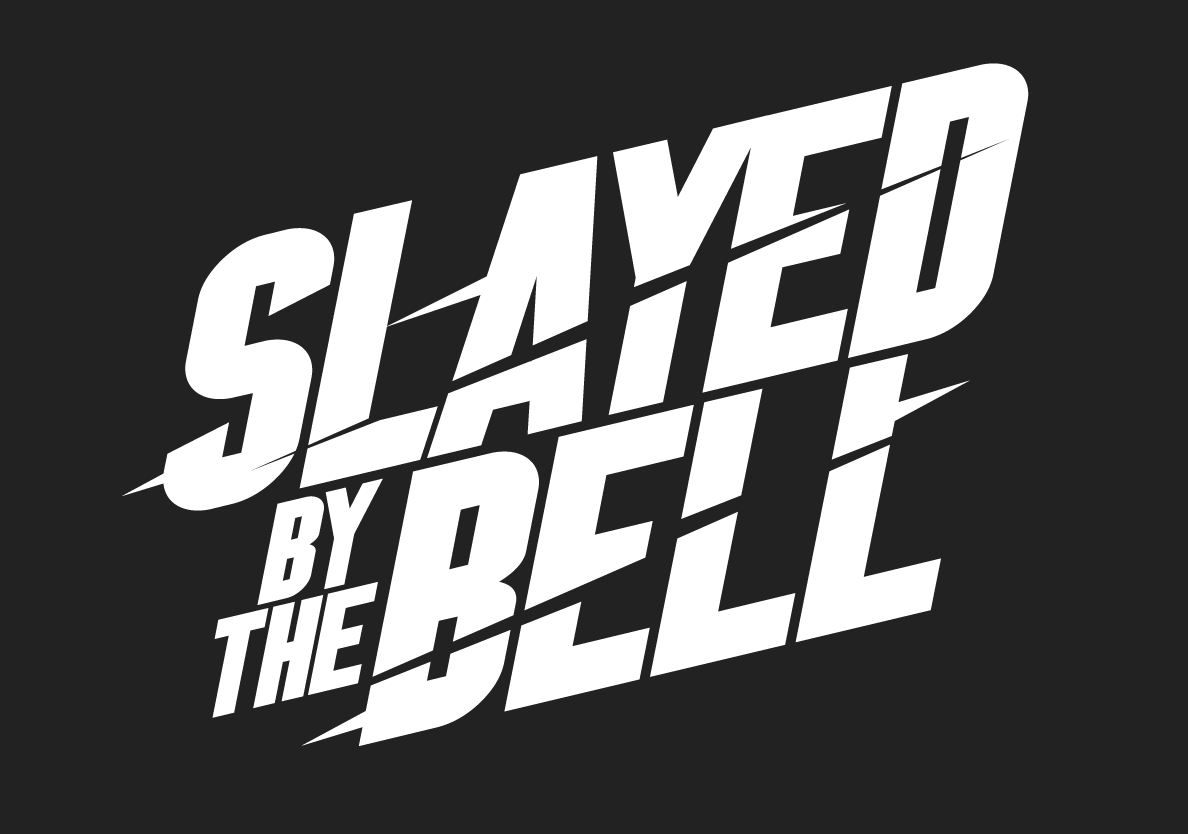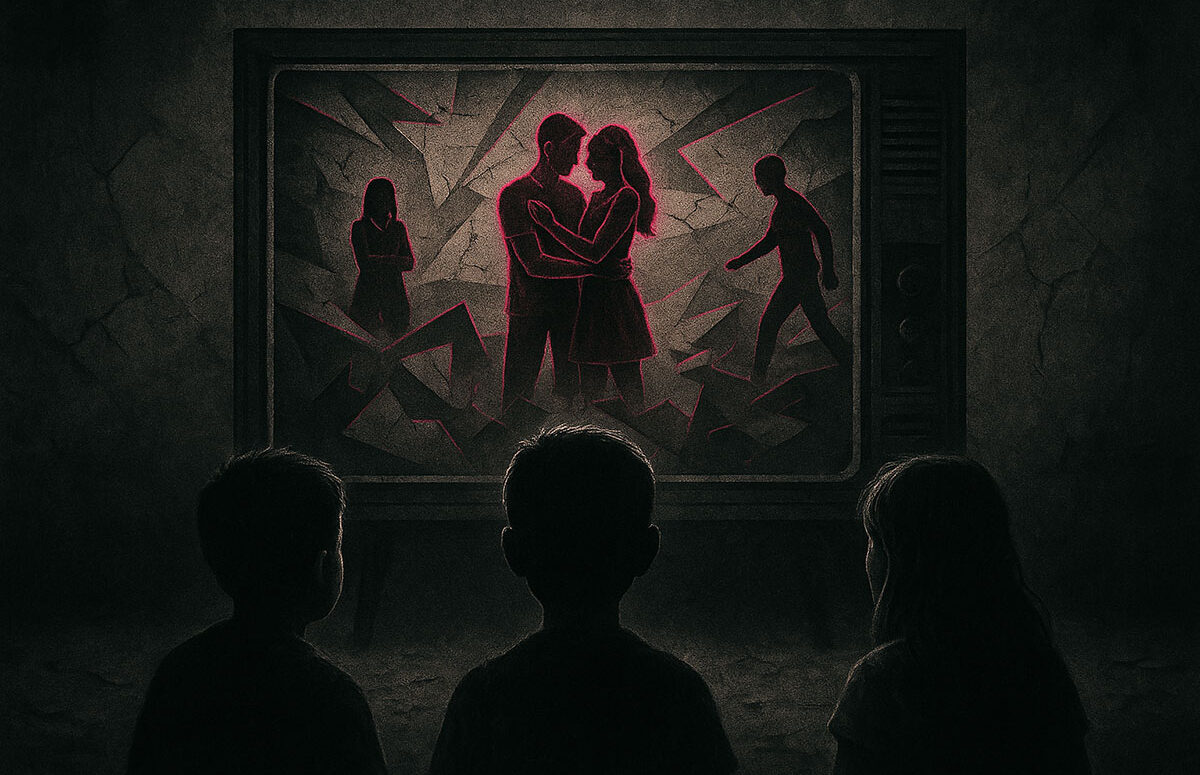How reality TV made emotional detachment aspirational, taught teens that attention matters more than integrity, and sold us connection performed by people who avoid it.
We live in a time where the spectacle has replaced sincerity. Nowhere is this more obvious than Love Island. It’s not a show about love. It’s a fucking marketing machine presented as romance, where emotional betrayal is a plot device and self-worth is measured in abs and airtime. The real scandal isn’t who kissed who. It’s what the show teaches and what students are learning.
Like J.G. Ballard’s The Atrocity Exhibition, it’s a showcase of curated people with little experience of healthy connections, edited into caricatures, and placed in artificial environments to provoke reaction, not reflection. Except now, instead of Ballard’s clinical psychosis and celebrity death cults, we get influencer clout and casual cruelty. The format is different. The rot is the same.
And yet, it’s not entirely without virtue. Occasionally, it shows the consequences of non-committal behaviour: the fallout of betrayal, the heartbreak of being “mugged off”, the vacant aftermath of playing the game too well. But these are side effects, not warnings. The main act—the thing we tune in for—is the fucking chaos. Love Island doesn’t promote commitment. It glamorises the refusal to commit. Love, when it appears, feels like an anomaly. A glitch in the system. And that’s the point. The spectacle only works because sincerity is rare.
Problem
Love Island doesn’t reward loyalty, empathy or integrity. It rewards performance. It rewards betrayal, deception, game-playing and self-interest. People who display traits we’d call red flags in real life—flirting while in a couple, talking behind someone’s back, hiding intentions—are treated as heroes if they do it with style.
Young people aren’t just watching this, they’re fucking absorbing it. It normalises emotionally harmful behaviour. It rewards vanity and manipulation. It tells students that commitment is weak, attention is currency, and love is a fucking competition. That’s not entertainment. That’s cultural rot. It’s Ballard ‘on Botox’; distorted reality presented as aspiration.
Causes
We’ve engineered a culture that values aesthetics over substance. Eleanor Roosevelt said, “Great minds discuss ideas; average minds discuss events; small minds discuss people.” Love Island trains millions to obsess over people’s actions, not ideas. Not values. Just gossip, image, status. It’s intellectual junk food. And there is a space for that of course; not everything has to be a Prof. Brian Cox documentary “join me on a journey….” etc etc but if all you are consuming is “junk”, there is little nutrition.
The production is built to reward conflict. The editing is designed to highlight drama and emotional chaos. And the platform algorithm amplifies the worst behaviour because that’s what drives engagement. “Loyalty” doesn’t trend. “Lust triangle” does. In this scenario, it’s often the woman—betrayed and reacting accordingly—who’s painted as the problem, while the disloyal men get a pass and a wink: “boys will be boys”, “lads, lads, lads” etc etc.
We’ve also created a generation raised on hypervisibility and instant validation, often fed by social media. If you’re not being watched, you don’t exist. If you’re not being wanted, you don’t matter. Love Island is the perfect cultural mirror: beautiful, curated, and emotionally vacant.
Effects
The impact on students is corrosive. They come to see casual disloyalty as standard behaviour and something to be expected, not challenged. They learn that it’s acceptable to hurt someone if it increases their own emotional desirability. Flirting with someone else “just to test the connection” isn’t seen as a betrayal but as a strategy. Honesty becomes redefined, not as protecting another person’s dignity, but as saying whatever gets you off the hook. The show subtly trains them to value visibility over integrity, attention over trust, and desire over commitment. The idea of a secure relationship becomes unfamiliar, replaced by a model where being chosen is always provisional, and where love is a performance.
For boys, it feeds toxic masculinity. Emotional distance is strength. Women are interchangeable. Being loyal is weak; being wanted by multiple people is power. They’re rewarded not for depth or respect, but for dominance, detachment, and control. Emotional awareness is sidelined, and insecurity is masked by ‘swagger’ (or whatever other word is trending). Vulnerability is edited out literally and figuratively.
For girls, the message is different but just as damaging. Be seen. Be wanted. Be perfect. Not thoughtful, not principled: desirable. The pressure to perform visually is relentless. Each morning and evening, the makeup ritual looks like a backstage prep for London Fashion Week—lashes, contour, lighting, angles. And yet this extreme is presented as normal. Not heightened, not performative—just expected.
In the show a girl watched the man she’s coupled with be openly disloyal: flirting, disrespecting her, humiliating her. But after the anger, the calling it out, the walking away. She doubled down on the performance. “I better make sure I wear a sexy bikini tomorrow.” Because in this warped environment, the solution to betrayal isn’t setting boundaries, it’s becoming more desirable. It’s not about self-worth; about wearing a bikini to feel good. It’s about winning attention back. Value is pinned to appearance, confidence is linked to validation, and intellectual strength or moral clarity barely enters the frame. Social media amplifies this further, making it feel not just aspirational but essential. Your image is your identity.
This results in relationships that are anxious, fragile, and adversarial. Built on insecurity, with partners constantly scanning for signs they’re about to be replaced or outperformed. Loyalty is seen as naive. Detachment is seen as power. Love Island teaches them—quietly, repeatedly—that hurt is the price of relevance, that disloyalty is thrilling, and that emotional fallout is just part of the spectacle. It creates a warped emotional economy where pain is part of the prize, and where real connection feels like a glitch in the system, not the goal.
Solutions
We can’t ban the show. And we probably can’t stop them watching. But we can do something.
- Teach media literacy with bite. Not just “don’t believe everything you see”—but why it’s constructed the way it is, and how it affects behaviour.
- Model healthy relationships in real life. Be the opposite of the show: consistent, honest, emotionally present.
- Call out toxic patterns directly. Students respect clarity more than platitudes.
- And stop pretending these shows are harmless. If they shape how students see love, they’re shaping how they build their lives.
Conclusion
Love Island should be called Loveless Island (or something better that I can’t think of right now). Not because people get dumped, but because real love gets discarded. It’s not about connection. It’s about competition. It’s not about integrity. It’s about influence. Love, when it happens, is a narrative inconvenience and the producers throw in whatever they can to prevent love. An exception. A glitch.
And young people are watching. They’re learning and it’s the same dysfunctional lessons epitomised by social media. Not how to love but how to posture. How to perform. How to keep options open. They’re internalising that not committing makes you stronger, more desired, more powerful.
Roosevelt said small minds discuss people. This show invites millions to do just that—endlessly, publicly, and with zero concern for consequence. Ballard warned us that when culture becomes a spectacle, all that’s left is atrocity. Love Island isn’t about love. It’s a test lab for emotional detachment, dressed up in swimwear.
If that’s the curriculum, we shouldn’t be surprised when students fail at relationships.

